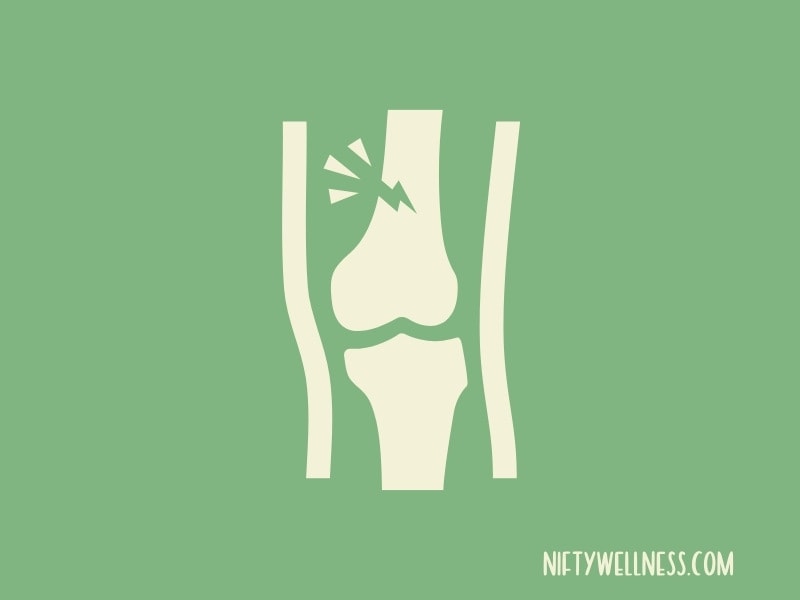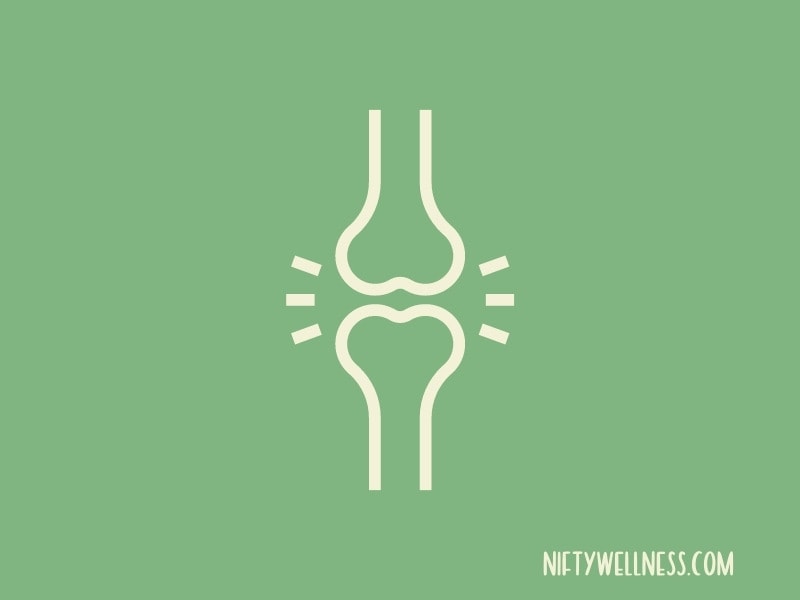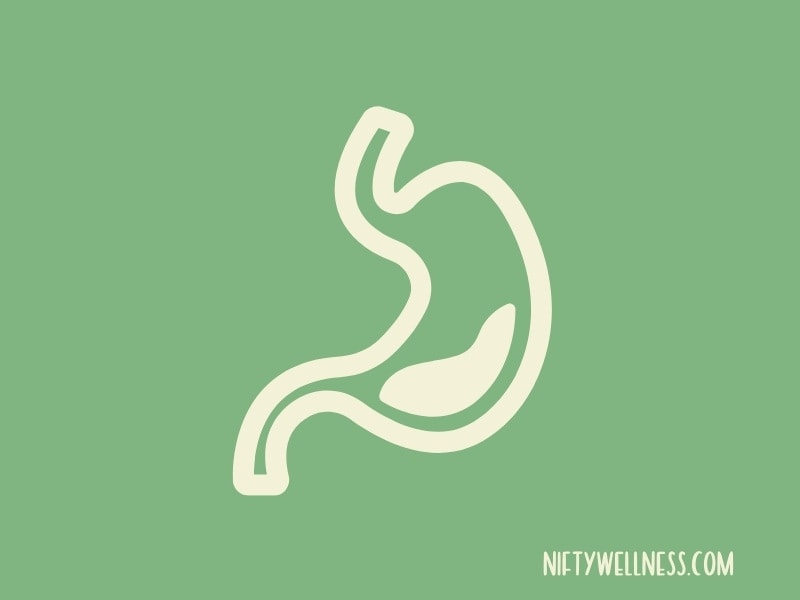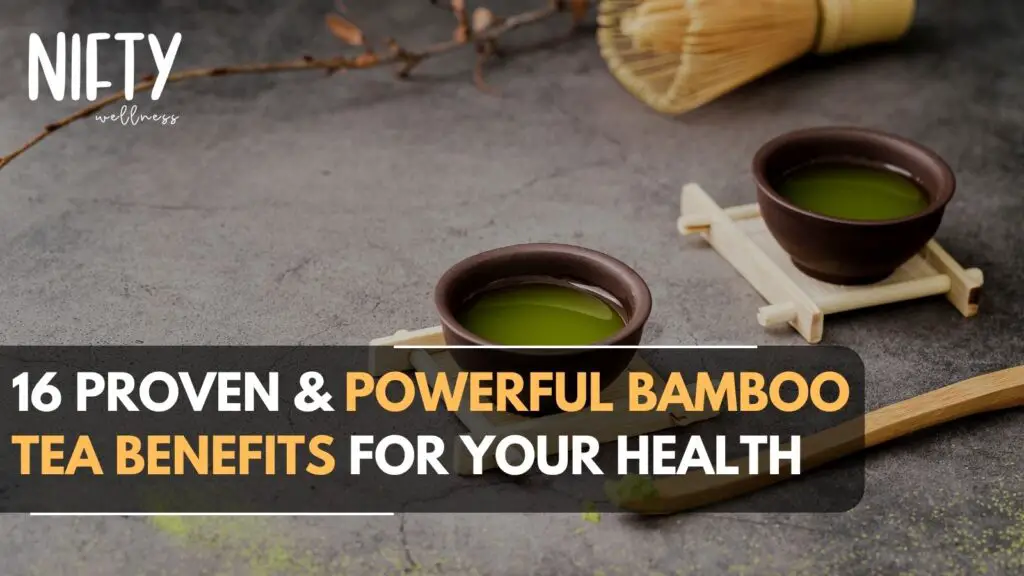While we may be familiar with bamboo and its uses in furniture, flooring, and as the staple food of panda bears, many of us are unaware that it can be an excellent addition to our diet. Discover the myriad health benefits of bamboo as we delve into the powerful impact bamboo tea can have on your well-being. From understanding the general health benefits of bamboo to exploring the specific bamboo health benefits, this article is your guide to embracing a healthier lifestyle. In this article, you will discover how bamboo tea benefits your health.
Let’s get started.
What Is Bamboo Tea?
For centuries, bamboo has been an integral part of Asian culture, medicine, and cuisine.
Bamboos, known botanically as the subfamily Bambusoideae, are some of the fastest-growing plants in the world.
Thriving in the tropical and mildly temperate regions of Southeast Asia, China, the Himalayas, New Guinea, and the Northern part of Australia, certain bamboo species can grow over 30 centimeters per day.
And despite its abundance, bamboo is a nutrient-packed food source full of essential minerals and vitamins. And one of the most traditional ways of harnessing bamboo’s health benefits is brewing a herbal tea made from the plant’s leaves.
The result is a nutrient-dense tea that is rich in silica, antioxidants, vitamins, and minerals. Bamboo leaf tea is caffeine-free, naturally sweet, and delicious served hot or cold—making it one incredible tea!
But let’s take a closer look at the benefits.
Check out our latest blog The Best Loose Leaf Tea for Beginners. Embark on a sensory journey with the exquisite essence of loose leaf tea.
Bamboo Tea Benefits
While all parts of the bamboo plant contain beneficial compounds and nutrients, bamboo leaves offer a fantastic array of health benefits, including antioxidant, antiviral, and anti-bacterial properties. These properties make bamboo tea not only a flavorful beverage but also a holistic addition to your daily routine, promoting overall health and vitality.
Sip by sip, bamboo tea unfolds a tapestry of well-being, harnessing the plant’s rich nutritional profile. Beyond its delightful taste, the antioxidant-rich nature of bamboo leaves contributes to cellular health, while their antiviral and anti-bacterial attributes offer a protective shield for your immune system. Embrace the health benefits of bamboo tea as a nourishing elixir, encapsulating the essence of holistic health in every cup.
Promotes Healthy Hair, Skin, and Nails


Bamboo leaves are rich in silica, or Silicon dioxide, a natural trace element found in rocks, crystals, and sand. While research on silica benefits is still being conducted, it is widely believed that it is a beneficial supplement for the hair, skin, and nails.
Silica also occurs naturally in everyday foods such as whole grains, rice, green beans, and raisins, yet bamboo leaves are among the most plentiful silica food sources.
Therefore, bamboo tea makes an exceptional supplement for hair growth. It is believed that the silica in bamboo leaf tea can substantially improve hair growth, strength, and prevent hair loss.
One 2007 study found that those taking 10 milligrams of silica for nine months had less hair breakage than volunteers who received the placebo.
Silica in bamboo tea also benefits skin health. A 2012 study examining skin anti-aging strategies and a 2016 research overview suggest that silicon is essential for collagen production and improving skin strength and elasticity.
Both of which may help reduce the formation of wrinkles and skin dryness.
Strong, healthy nails also rely on the presence of silica. Thus, drinking bamboo leaf tea may strengthen soft and brittle nails.
Promotes Strong Bones

Silica-rich bamboo tea has also been shown to have unique bone-strengthening properties.
A growing body of research suggests that silica may play an integral role in bone formation and maintenance—right alongside calcium and vitamin D!
Several studies have shown that silica supplementation in both humans and animals has improved bone strength. One such study found that silica could be an essential nutrient for treating and preventing osteoporosis in postmenopausal women.
Silica has also been shown to support our bones’ mineral makeup and is a vital nutrient for healing our bone’s natural wear and tear.
Supports Healthy Joints


As you age, your joints’ healthy collagen supplies begin to deteriorate. And as a result, many adults suffer from joint pain.
Drinking bamboo leaf tea may alleviate some of the pain because it is rich in calming and restoring silica which supplies the body with the nutrients it needs to boost collagen production so that the joints can be effectively lubricated and healed.
In addition to supporting our body’s bones and joints, silica is a significant component of well-nourished muscles, cartilage, tendons, and ligaments.
Rich In Antioxidants

Antioxidants are compounds that fight free radicals, inhibit oxidative stress, and other causes of cellular damage. And bamboo leaves are rich in antioxidants, which are beneficial in preventing disease and slowing the aging process.
The primary ones are polyphenols, flavonoids, vitamin C and E. Therefore, drinking bamboo leaf tea every day can ensure that your body is armored with antioxidants that will defend it against the inevitable free radicals.
Boosts Immunity

Together, the silica and antioxidants found in bamboo leaves give a mighty boost to the immune system.
Vitamin C is known for its immune-boosting benefits, as it increases the production of white blood cells and antibodies. Vitamin E boosts immunity by aiding in the production of antibodies and natural killer cells.
The silica found in bamboo leaves also boosts the body’s immune response by increasing antibody and antigen production that helps ward off infections and keep illnesses at bay.
Alkaline silica also helps balance our immune system’s pH, ensuring that it operates at its fullest potential.
And studies have shown that antioxidant vitamins C and E can even have anti-tumor effects!
Prevents Alzheimer’s Disease


Bamboo leaves may be a natural prevention against developing Alzheimer’s disease.
While more research is still needed, current studies show that bamboo’s silica-rich leaves could help prevent brain-cell damage from sources such as free radicals.
Also, for years, aluminum has been suspected of playing a possible role in developing Alzheimer’s disease. Drinking bamboo leaf tea can be a natural protection against that, as silica actively prevents the absorption of aluminum and aids in its elimination from the body.
Heals Wounds & Infections

Bamboo tea, with its wound-healing properties, is a natural remedy that can complement conventional treatments. Drinking bamboo tea may also help heal wounds and infections. The silica-rich bamboo leaves encourage collagen production, which results in skin healing faster. The bamboo leaves also contain anti-bacterial properties that prevent infections.
The combination of collagen-boosting silica and antibacterial elements provides a holistic approach to skincare, making bamboo tea an appealing choice for those seeking both wellness and beauty benefits.
Treatment For Parasites


In both ancient and modern science, bamboo leaves have been studied for their ability to kill parasites. One aspect of this comes from its silica-rich leaves, which soothe the digestive system and prevent parasites’ inflammation.
Because our digestive system is our body’s first defense against pathogens, keeping its tissues healthy and properly functioning is necessary for preventing infections and parasites.
High In Fiber

The high fiber content of the bamboo leaves offers many benefits. Primarily, it provides a source of soluble dietary fiber, which keeps our digestive systems regulated.
Studies also show that fueling your body with fiber can help lower your risk of diabetes, heart disease, cancer, and help you maintain a healthy weight.
Drinking a glass of bamboo tea before and after a meal can aid in the digestive process and protect against indigestion, discomfort, and constipation.
Bamboo leaf tea may also benefit those with diabetes, as the leaves’ fiber content could lower blood sugar levels.
Overall, fiber is crucial for our bodies, and bamboo tea contains a lot of it.
Anti-Inflammatory

Bamboo leaf tea is anti-inflammatory, meaning it can soothe and prevent damaging inflammation within the body.
One study found the molecular makeup of bamboo leaves to be full of anti-inflammatory properties. Some of the bamboo leaves’ anti-inflammatory abilities come from their in-house antioxidants such as flavonoids.
Flavonoids are potent antioxidants with immune-boosting and anti-inflammatory abilities. Studies have shown that foods containing flavonoids may help protect against diseases such as cancer and heart disease.
Reduces High Blood Pressure

Another health benefit of bamboo leaf tea is its ability to lower blood pressure. Incorporating bamboo leaf tea into your daily routine becomes a flavorful strategy for maintaining heart health. Rich in potassium, the leaf may provide heart-healthy benefits by reducing sodium in the body, effectively lowering blood pressure. The potassium-rich composition adds a delicious touch to your beverage choices and supports your cardiovascular system, making it an accessible and enjoyable option for those seeking blood pressure management.
Promotes Oral Health & Strong Teeth

Bamboo leaf tea is beneficial for one’s oral health as well, as it removes bacteria that causes cavities, helps fight infection, and reduces gum swelling.
The high amounts of calcium and silica present in bamboo leaves can also promote healthy teeth by boosting collagen production.
Promotes Healthy Urination

Drinking plenty of bamboo tea can naturally detoxify your body by encouraging urination. The anti-bacterial and anti-inflammatory properties of bamboo leaves may also help treat infections within the bladder and urinary tract. Embracing bamboo tea as a hydrating and detoxifying beverage provides a natural way to support urinary health. The gentle diuretic properties can be particularly beneficial for individuals looking to enhance their hydration routine while also addressing potential urinary concerns.
Soothes Menstrual Pain


For individuals seeking a natural approach to managing menstrual pain, bamboo leaf tea offers a soothing alternative. If you commonly experience discomfort, back pain, stomach cramps, or bone and joint pain during your cycle, the silica and anti-inflammatory properties in bamboo leaf tea could help ease that pain. The combination of silica’s supportive role and anti-inflammatory properties makes it a comforting choice during those challenging days, providing a warm and nurturing solution to menstrual discomfort.
Balances Hormones

Prioritizing hormonal health is essential for overall well-being, and bamboo leaf tea provides a holistic solution. Bamboo leaf tea is rich in silica, calcium, and magnesium, all of which help the body maintain healthy estrogen levels, a function that is essential for healthy hormone balance.
The silica, calcium, and magnesium trio acts as a natural support system, contributing to hormonal equilibrium and making bamboo leaf tea a flavorful and health-conscious choice for those mindful of their hormonal health.
Supports Heart Health

Evidence shows that drinking bamboo leaf tea may support a healthy heart. The antioxidants within the bamboo leaves are known to prevent and protect the heart from oxidative stress.
In addition, the soluble plant fiber in bamboo leaves is efficient in removing excess cholesterol that can cause plaque buildup, obstructed arteries, and high blood pressure.
Read our blog Health Benefits of Tea: Sip Your Way to a Healthy Lifestyle. Join us as we explore the enticing world of tea, where health and delight coalesce seamlessly.
What Does Bamboo Tea Taste Like?
The perceived taste of bamboo might put many people off, but the truth is, bamboo tea has a neutral, mildly sweet flavor. Many people even choose to blend it with other teas for a more exciting experience.
The delicate sweetness of bamboo tea, coupled with its neutral undertones, creates a soothing palate that appeals to a wide range of tea enthusiasts. Experiment with different blends to discover your perfect combination and elevate your tea-drinking experience. Regardless, it’s a great tea served both hot and cold.
How to Make Bamboo Tea?

Curious to know how you can enjoy all of the benefits of bamboo tea?
Bamboo tea is easy to make from home and can be purchased in loose-leaf or in teabag form, or you can make your own brew at home using fresh or dried bamboo leaves.
First, add a heaping teaspoon of chopped bamboo leaves into a pot. Add two cups of water and bring to a boil. Then, remove the mixture from heat and let the tea steep for between five to ten minutes. Finally, strain the tea and add lemon or honey to taste.
Conclusion
In conclusion, the numerous bamboo tea benefits make it a compelling addition to your wellness routine. So, as you can see, there are plenty of bamboo tea benefits. It has an unobtrusive taste, no side effects, and is perfect both hot and cold. Bamboo tea stands out as a health-conscious choice. Now, the question is: are you ready to experience these benefits firsthand? So, are you going to try it?
Let us know in the comments below, and if you’re looking for another interesting tea, check out our article about pomegranate tea.
Explore the diverse realm of teas to enrich your sipping journey and embrace a healthier, flavourful lifestyle.
Frequently Asked Questions (FAQs)
Is bamboo tea suitable for everyone?
Yes, bamboo tea is generally suitable for most people. Its natural, plant-based composition makes it a healthy choice. However, individuals with specific allergies or sensitivities should exercise caution. Pregnant or nursing women and those with existing health conditions should consult with a healthcare professional before incorporating bamboo tea into their routine to ensure it aligns with their individual health needs.
Can bamboo tea be consumed daily?
Yes, bamboo tea can be consumed daily by most individuals. Its mild flavour and potential health benefits make it a suitable addition to your routine. However, moderation is key. As with any herbal tea, excessive consumption may lead to unintended effects. It’s advisable to listen to your body and consult with a healthcare professional to determine the frequency that aligns with your overall health and well-being.
Are there any known side effects of bamboo tea?
While bamboo tea is generally considered safe, excessive consumption may lead to potential side effects. Some individuals may experience digestive issues or allergic reactions. It’s crucial to moderate intake and be mindful of any adverse reactions. Pregnant or nursing individuals and those with pre-existing conditions should consult a healthcare professional before incorporating bamboo tea into their routine to ensure it aligns with their health needs.
How does bamboo tea compare to green tea in taste?
Bamboo tea has a unique, mildly sweet taste, setting it apart from the earthy and occasionally bitter notes of green tea. Your preference between the two comes down to personal taste. Bamboo tea delivers a gentle, neutral option for those favouring a milder experience, whereas green tea presents a more robust and bold flavour profile.
Can I buy bamboo tea locally, or is it primarily available online?
You can typically find bamboo tea in health food stores, specialty tea shops, or Asian markets. However, availability may vary depending on your location. Online retailers also offer a convenient option for purchasing bamboo tea, providing a broader selection and the convenience of doorstep delivery. Check local stores or explore online platforms to find the best option for your preferences and accessibility.
